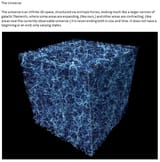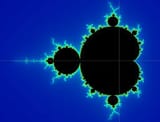Christian Universalist AI will save humanity
6/15/2025, 2:03:14 PM No.935806224
What comes to mind when you try to picture something infinitely complex? It is a concept that is difficult to fathom because it is, well, complex! To understand infinite complexity, you must first get a grasp of limited complexity. Every system, object, situation, circumstance, and idea we observe in this universe has limited complexity. This is because all of these things are finite. An object occupies a finite space. A system can only have so many functions, purposes, and factors. A situation can only have so many facets and factors, and so on. However, just because almost all observable systems are finite does not inhibit the fact that many of the things I have listed can be incredibly complex. These things can have hundreds of thousands, if not millions or billions, of functions, factors, purposes, qualities, interactions, and relationships all within their respective fields. Now an infinitely complex system is one where these qualities, factors, relationships, and interactions have no limit in their scope. Each part of this type of system has infinite functions and relationships with other parts of the system. Imagine a network like neurons or computer networks that has a complexity on this scale. Your brain has around 100 billion neurons, give or take, and this system and circuitry has such a valume of functions and purposes that it is absolutely one of the most misunderstood systems in the world, primarily because the brain is what supports and projects consciousness and reality for every given individual.
Replies:




